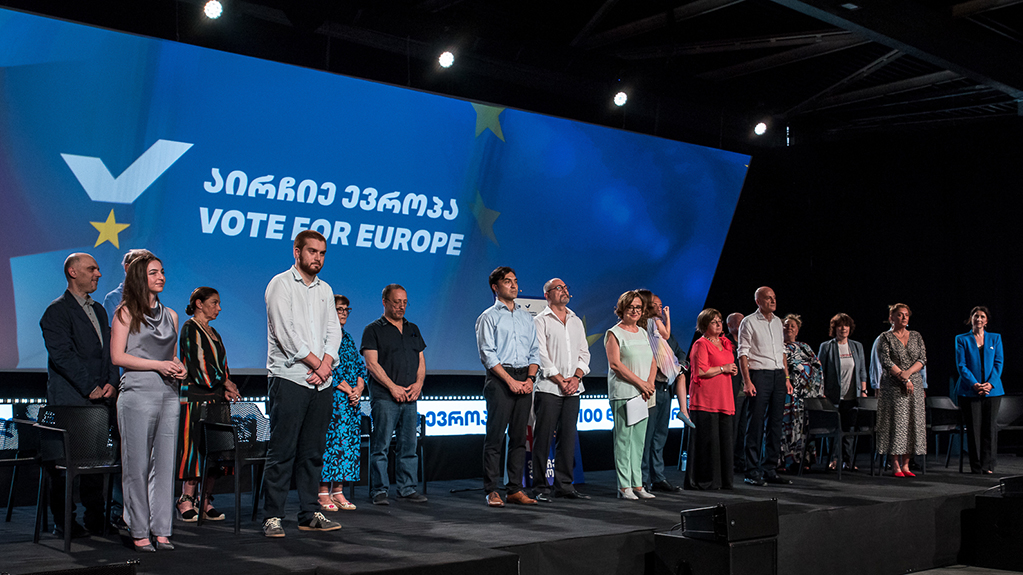The Tbilisi City Court has approved the anti-corruption bureau's request for information regarding the transactions on the bank accounts of the civil movement Vote for Europe and its founders. As per the Georgian Young Lawyers' Association, this request was unfounded.
News
Vote for Europe was founded on July 11 by security expert Khatuna Lagazidze; political analyst and Tbilisi State University professor Lela Jejelava; European politics expert Giorgi Rukhadze; businessman Iva Chkonia; and Dr. Lasha Dzebishvili, professor at the University of Georgia. The movement’s stated goal is to protect Georgia’s European future, independence, and freedom.
Prior to this, on May 29, 2024, the Parliament adopted an amendment to the Law On Political Unions of Citizens, which granted the Anti-Corruption Bureau the authority to request information from any person to monitor the financial activities of political parties, electoral entities, or individuals with declared electoral goals. This includes requesting necessary information from public institutions, individuals, legal entities (including payment service providers), and other entities, including special categories of personal data, other personal data, and information containing secrets (excluding state secrets). The bureau can request non-public information based on a court decision.
According to Khatuna Lagazidze, a founder of Vote for Europe, these legislative changes violate freedom of expression and the right to privacy.
"This is political persecution of civilians. If this precedent is established, no Georgian citizen will be protected. This law resembles something from North Korea, not Russia. We have appealed the court's decision," said Lagazidze.
Nona Kurdovanidze, chairwoman of the Georgian Young Lawyers' Association, stated that the Anti-Corruption Bureau filed a motion to request information from Vote for Europe in such a way that it does not clarify whether a monitoring process has been initiated or which specific subject is being monitored as required by law.
"If monitoring has been initiated against Vote for Europe, it is not substantiated whether the Anti-Corruption Bureau’s mandate covers this type of activity. Additionally, the necessity of the volume of requested information and its alignment with the objective are not substantiated," said Kurdovanidze.
She added that, given the lack of independence of the Anti-Corruption Bureau, unsubstantiated decisions raise concerns about the potential arbitrary use of its mandate. In such cases, the court should act as the guarantor of rights protection and ensure a fair and impartial consideration of the case.
"However, the court of first instance failed to fulfill its assigned functions. The order issued by the court does not address any of the critical questions relevant to the case," said the chairman of GYLA.
GYLA calls on both the Anti-Corruption Bureau and the court to adhere to legal requirements and principles, ensure their actions are appropriately justified, and assess the risks of disproportionate restriction on individuals' basic rights during the monitoring process.















